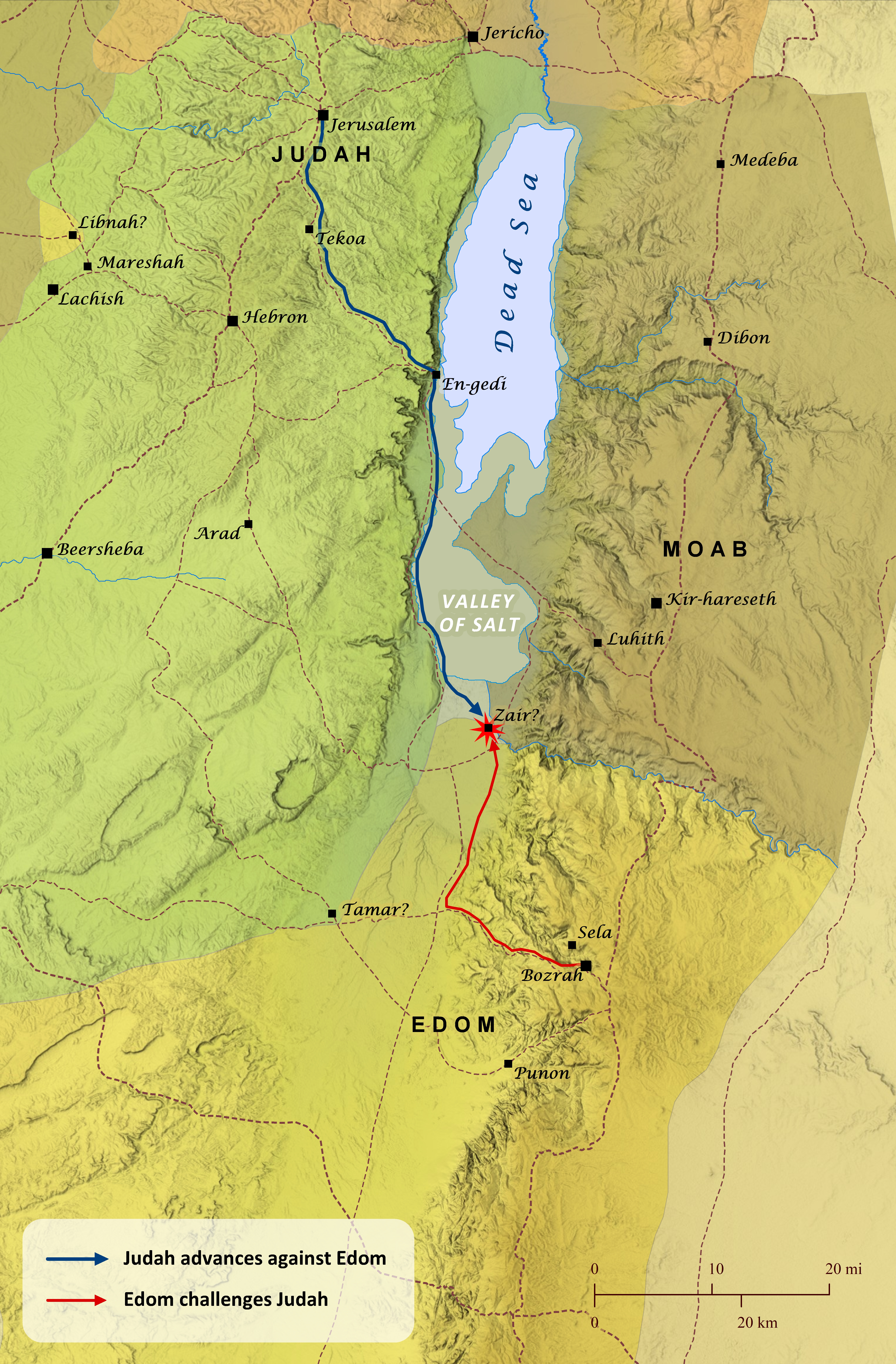Readers’ Version
Literal Version
31 Yehoshafat was thirty-five years old when he became king, and he reigned over Yehudah from Yerushalem for twenty-five years. His mother was Shilhi’s daughter, Azuvah. 32 He had similar priorities to his father Asa, doing what pleased Yahweh, and he didn’t deviate from that. 33 However, he never removed the hilltop shrines, and the people were not really serious about obeying the god of their ancestors.
34 Everything else that Yehoshafat did from the beginning to the end of his reign was written down by Hanani’s son Yehu in the scroll about Yisrael’s kings.
35 Later on, Yehudah’s King Yehoshafat made an alliance with Yisrael’s King Ahazyah (which was a wicked thing to do), 36 and they worked together to make ships at Etsyon-Gever to sail to Tarshish. 37 Then Dodavahu’s son Eliezer from Mareshah prophesied against Yehoshafat, saying, “When you allied yourself with Ahazyah, Yahweh broke through your works.” In due course, the ships were damaged and unable to sail to Tarshish.
21 Then Yehoshafat died and was buried with his ancestors in ‘The City of David’, and his son Yehoram (Jehoram) replaced him as king.
32 And_he/it_went in/on/at/with_way_of his/its_father ʼĀşāʼ and_not he_turned_aside from_her/it for_doing the_right in/on_both_eyes_of YHWH.
33 Only the_high_places not they_were_removed and_yet the_people not hearts_of_their they_directed on_god_of ancestors_of_their.
34 And_rest_of the_matters_of Yəhōshāfāţ/(Jehoshaphat) the_first and_the_last see_they are_written in/on/at/with_annals_of Yēhūʼ/(Jehu) the_son_of Ḩₐnānī which it_was_recorded on the_scroll_of the_kings_of Yisrāʼēl/(Israel).
35 And_after so[fn] Yəhōshāfāţ he_made_an_alliance the_king_of Yəhūdāh/(Judah) with ʼAḩazyāh the_king_of Yisrāʼēl/(Israel) he he_acted_wickedly for_doing.
36 And_joined_him with_him/it for_doing ships to_go Tarshiysh and_they_made ships in/on/at/with_ˊEʦyon- geⱱer.
37 And_ ʼElīˊezer _prophesied the_son_of Dōdāvāhū of_Marʼēshāh on Yəhōshāfāţ to_say because_joined_you with ʼAḩazyāh YHWH he_will_break DOM what_havemade_of_you and_ ships _wrecked and_not they_retained to_go to Tarshiysh.
21 And_ Yəhōshāfāţ _slept with fathers_of_his and_buried with fathers_of_his in/on/at/with_city_of Dāvid and_ Yəhōrām/(Jehoram) _became_king his/its_son in_place_his.
20:35 OSHB exegesis note: A single word in the text has been divided for exegesis.


